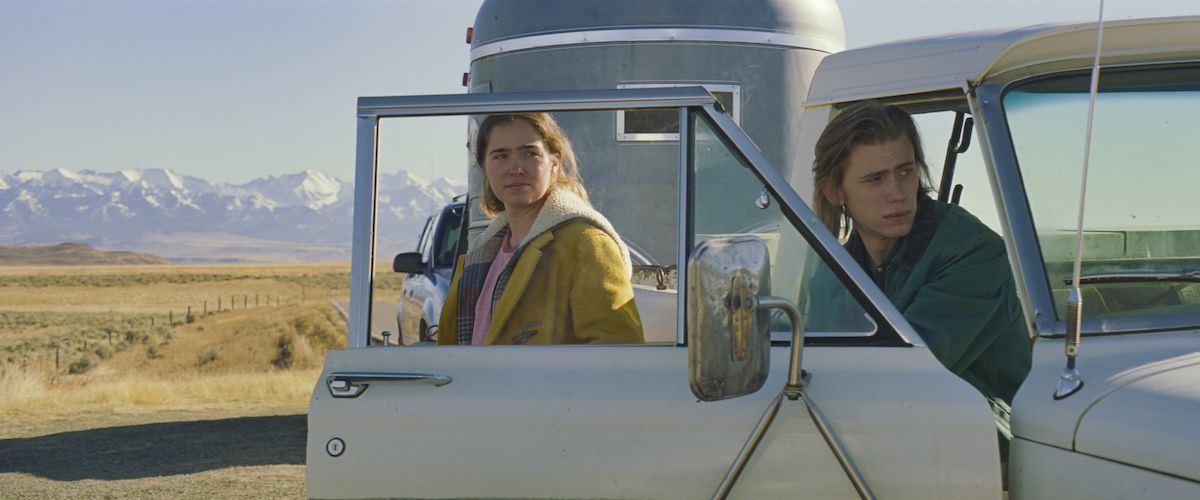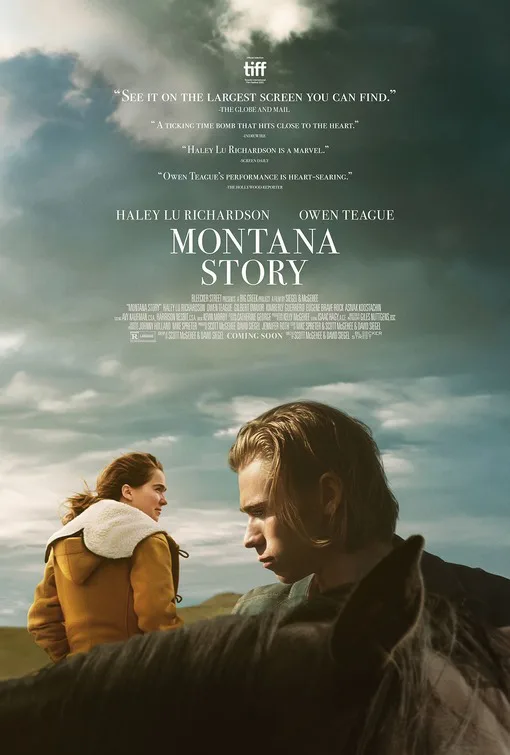“Montana Story,” about a brother and sister coming to terms with tragic family secrets during a road trip, is a throwback to an era of independent cinema in which an intimate story about people involved in situations that could actually happen could get seen on big screens in art house cinemas, a type of institution that was gradually disappearing at the time this review was published. The film is written and directed by the filmmaking team of Scott McGehee and David Siegel, who have made eight modestly-budgeted, acting- and directing-driven films during the past three decades, including the mind-bending thrillers “Suture” and “The Deep End” and the intense dramas “The Business of Strangers” and “Bee Season.”
Modern audiences will become impatient with the quietness and meditative pace, and the writing is probably a little too schematic in certain ways. The familial dysfunction at the heart of the story as well as certain images and plot elements evoke 1960s rural melodramas like “Hud” and “The Last Picture Show,” which were powerful but wore metaphors on their denim shirt-sleeves and would likely be written off as “old-fashioned” today. But the expansive widescreen images of Montana landscapes and the impeccable lead and supporting performances carry the picture, and it’s generally a pleasure to see a film done in this mode at a time when so few filmmakers dare attempt it.
Owen Teague (of “Bloodline” and “The Stand”) stars as Cal, a young man who returns to his family home to take charge of the estate of his dying father, who’s been in a coma following a stroke. He’s soon joined by his half-sister Erin (Haley Lu Richardson of “Ravenswood”), who’s been estranged from the family for years following her rebellion against their father. Without giving too much away, suffice to say that the father’s betrayals are in tune with a tradition that snakes through film noir and revisionist Westerns and plugs into the tradition of ancient Greek tragedy: the violence and sorrow that separated Erin from the family is directly related to the father’s betrayal of legal, ethical, and moral codes, and all of this is folded into a more skeptical view of American history than is taught in most public schools.
There’s a long, thoughtful sequence in which the siblings stare at a gaping and entirely pointless hole in the earth that their father’s legal and business advice helped a mining corporation dig. Erin then schools her brother on the circles of Hell described in Dante’s Inferno and relates them back to the history of their family and the state that’s superficially and evasively defined to schoolchildren mainly through praise for its “big skies.”
But the filmmakers take care not to let the situations become too abstract, always relating them back to the siblings and their family homestead, as well as the economics of the surrounding community—factors that also affect their housekeeper Valentina (Kimberly Guerrero); their father’s nurse, a Kenyan immigrant nicknamed Ace (Gilbert Owuor); and their father’s increasingly decrepit horse, which Cal has decided to put to sleep, but that Erin impulsively decides to relocate to her new home in upstate New York. (Erin’s fixation on saving the horse is a redemptive, history-rewriting move that relates directly to her own trauma at the hands of the father.)
This is the sort of film that can generate low-key suspense over whether a battered pickup truck and horse trailer that Erin purchases from a transplanted Mohican named Mukki (a superb cameo by character actor Eugene Brave Rock) will work. The scene of Cal and Erin negotiating the purchase and performing routine repairs and taking the truck for a test drive takes up several minutes of the film, and amounts to a delicate short film about negotiation, with layers of class and racial distrust layered into the characters’ interactions, as well as generosity of feeling and unexpected moments of connection.
It might be asking too much of viewers who are increasingly conditioned to relate only to big-budget intellectual property-driven fantasies packed with Easter eggs and teasers to sit still for a nearly two-hour, self-contained story about the emotional and economic problems of a rural Montana family. The movie is also less than perfect, and tends to err on the side of being modest and unassuming (even the breathtaking natural vistas are photographed in a matter-of-fact way). But there are many rewards to be found here, not the least of which is a skill at staging scenes with beginnings, middles, and ends that are entirely dependent upon the subtle interactions of a few actors who live or die on the basis of the words they’ve been given to speak, and the silences they’ve been encouraged to inhabit.
Now playing in theaters.




















